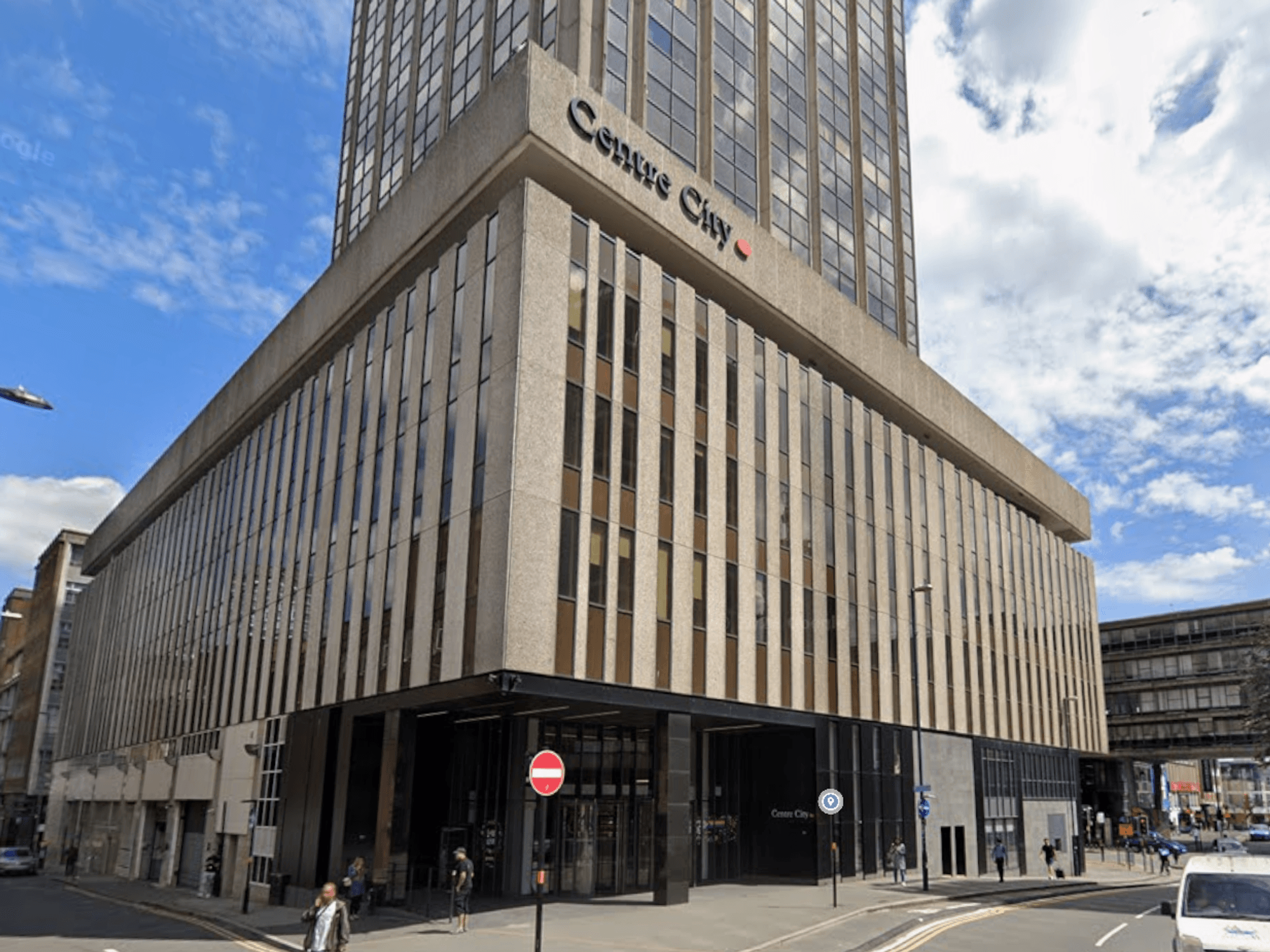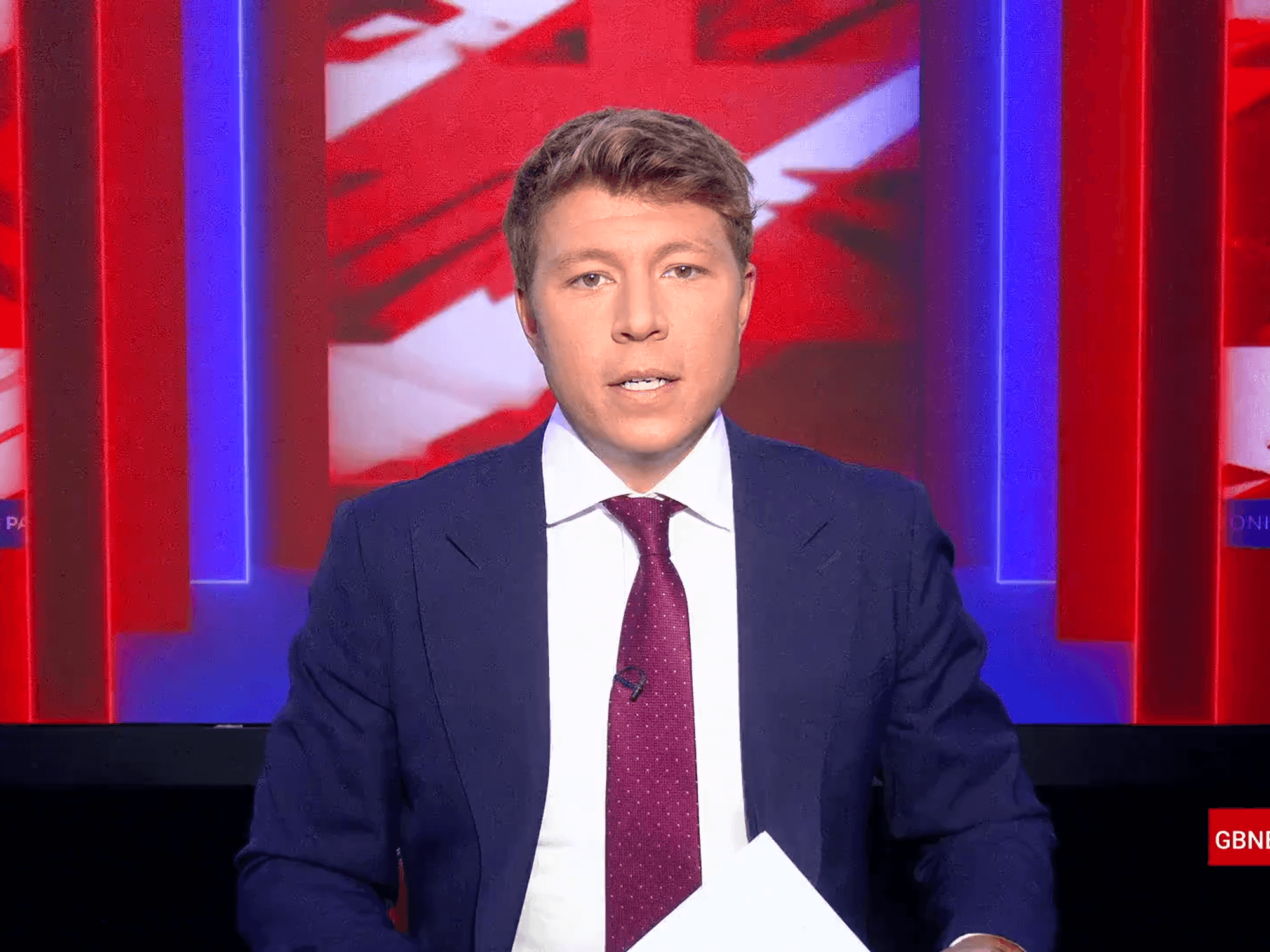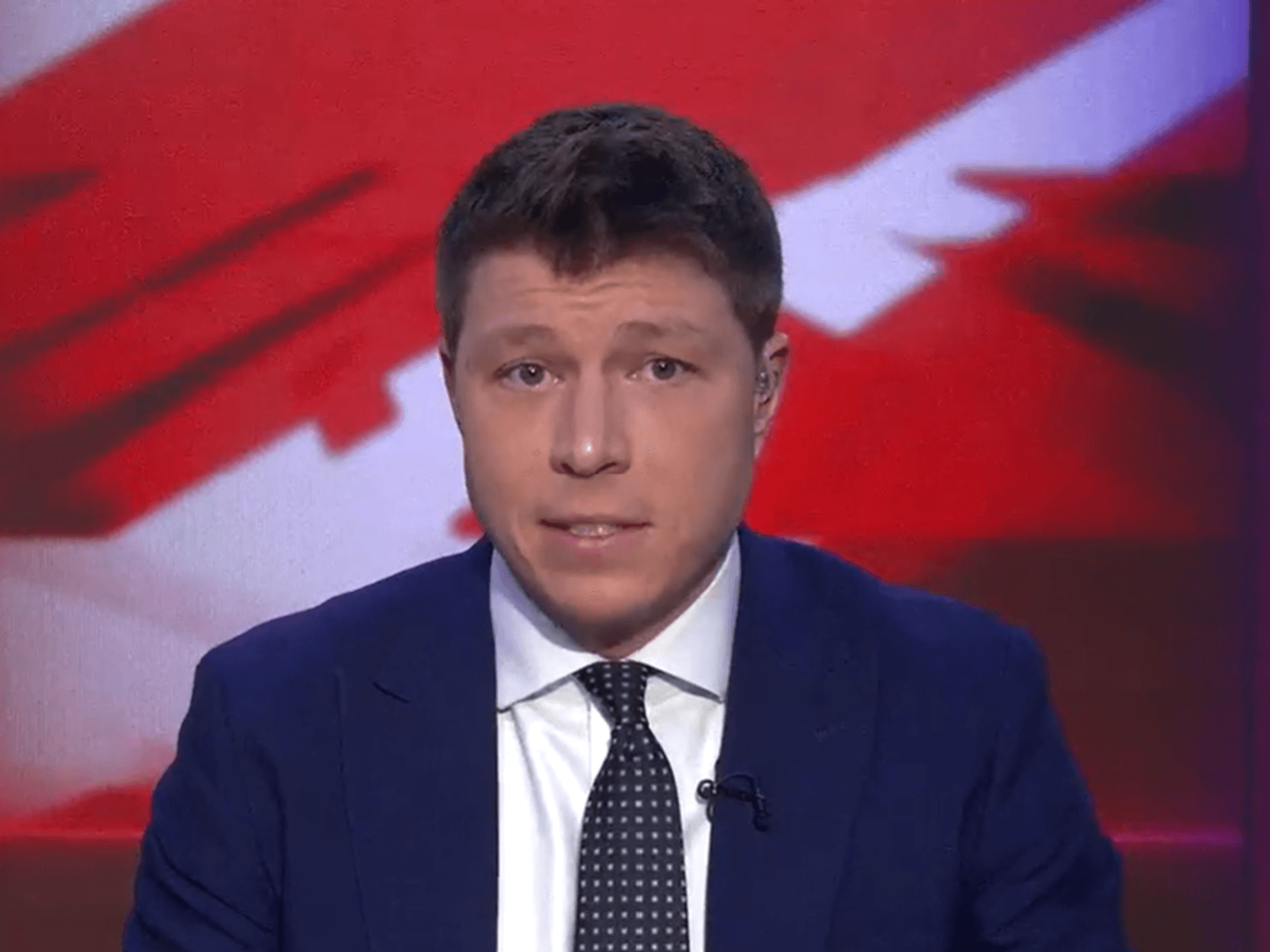JD Vance was right: Britons are one tweet and Brexity book away from ending up in handcuffs - Lee Cohen
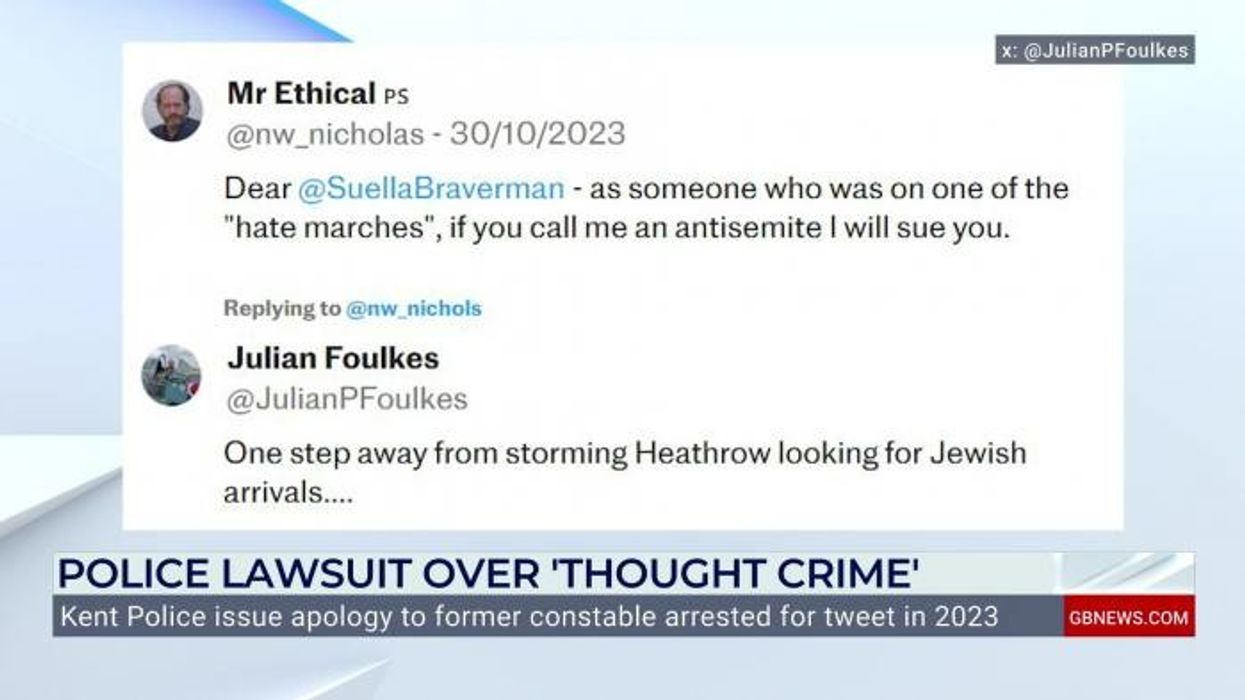
Julian Foulkes shares experience of being arrested for thought crime |
GB
OPINION: The UK police, once a symbol of order and fairness, increasingly resemble agents of thought control
Don't Miss
Most Read
Trending on GB News
From America, I’ve long admired Britain’s storied history of free thought and robust debate—from the Magna Carta to the fiery exchanges in Parliament.
But the recent re-exposure of the appalling treatment of Julian Foulkes, a 71-year-old retired special constable arrested over a tweet and reportedly flagged for owning "very Brexity" books, serves as a stark reminder of the alarming state of play in Britain today.
The UK police, once a symbol of order and fairness, increasingly resemble agents of thought control—eager to enforce ideological orthodoxy while eroding the freedoms they once protected. No wonder concerns voiced by Elon Musk and JD Vance are gaining traction.
On 27 February 2025, Vance took a direct swipe at Britain in the Oval Office, criticising Starmer’s government for curbing free speech and undermining American tech firms operating abroad. It wasn’t an isolated remark.
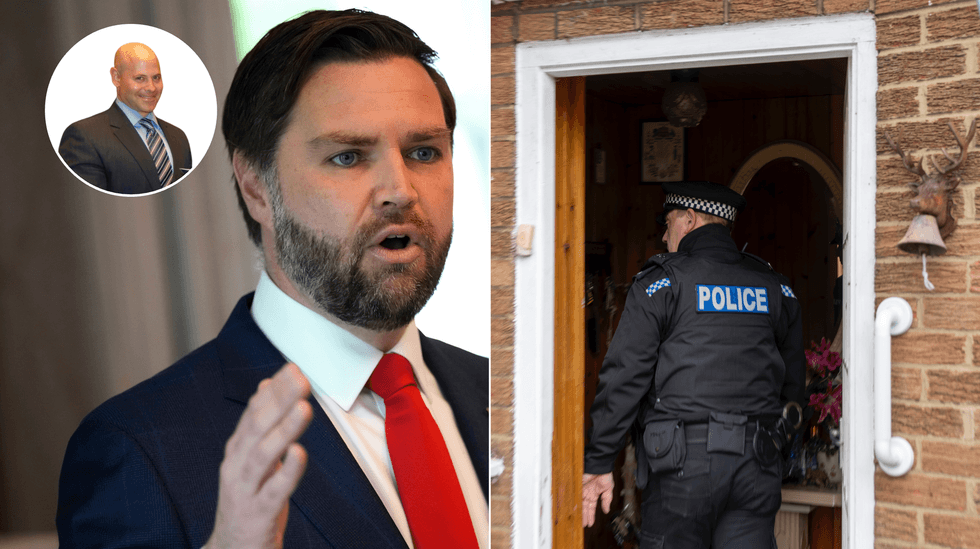 JD Vance was right: Britons are one tweet and Brexity book away from ending up in handcuffs - Lee Cohen |
JD Vance was right: Britons are one tweet and Brexity book away from ending up in handcuffs - Lee Cohen | Getty Images
At the Munich Security Conference days earlier, he warned that free speech in the UK is “in retreat”, citing the conviction of a military veteran for silently praying near an abortion clinic.
Starmer’s assertion that Britain “guards free speech preciously” rings hollow when pensioners are arrested over tweets—exactly the sort of thing that fuels Vance’s alarm.
For those who cherish sovereignty and bristle at Labour’s creeping statism, his defiance—echoing concerns raised by Nigel Farage and Elon Musk—reflects a growing sense that something is seriously amiss.
The case of Foulkes is a textbook example of this disturbing trend. In 2023, Foulkes responded to a social media post that mocked Suella Braverman’s description of pro-Palestinian protests in London as “hate marches”.
His reply warned of growing antisemitism on British streets, referencing a mob in Dagestan that stormed an airport hunting for Jewish passengers—a shocking event covered widely, including by CNN. Hardly a call to violence—more a sobering reflection grounded in observable reality, particularly given the Community Security Trust’s report of a 465% spike in antisemitic incidents in the UK that year.
Yet six officers from Kent Police descended on Foulkes’ home. He was arrested, detained for eight hours, and had his devices seized.
Incredibly, officers reportedly commented on his reading material—books by Douglas Murray and copies of The Spectator—as “very Brexity”, as though conservative literature now constitutes evidence of wrongdoing.
Though he initially accepted a caution to avoid travel complications, he later had it overturned with the help of the Free Speech Union.
 Julian Foulkes shares experience of being arrested for thought crime | GB
Julian Foulkes shares experience of being arrested for thought crime | GBKent Police subsequently admitted they had acted improperly and issued a formal apology. The FSU is now backing his legal claim for wrongful arrest and unlawful detention.
This is not simply an overreach—it is the policing of political dissent. And it is deeply un-British.
Nor is Foulkes’ case an isolated incident. Consider Telegraph columnist Allison Pearson, who found herself under investigation by Essex Police last November over a tweet they deemed potentially racially inflammatory. Officers turned up at her home—on Remembrance Sunday, no less—seeking a voluntary interview under caution. Pearson declined.
Days later, the case was reportedly escalated from a “non-crime hate incident” to a potential offence under the Public Order Act.
She has rightly described the experience as a grotesque waste of resources and a chilling threat to free expression. While the investigation was ultimately dropped, the message was clear: dissent is dangerous.
What’s driving this madness? Increasingly, it appears British policing is less about maintaining public order than about enforcing establishment ideology. While violent crime festers in neglected communities, officers are dispatched to investigate columnists and pensioners over social media posts. It’s hard to see this as anything but a politicised distortion of law enforcement. When the state begins to police opinions, we’re no longer talking about security—we’re talking about control.
This growing authoritarian impulse has not gone unnoticed here in America. JD Vance, now Vice President of the United States, has been vocal in his criticism of Britain’s direction. He specifically referenced the silent prayer conviction and the broader culture of censorship during his Munich address. Elon Musk, too, has used his platform to warn about the UK’s descent into censorship, describing the spread of “false and misleading claims” from those in power as a gateway to authoritarianism.
These aren’t fringe voices. They reflect a rising concern that the UK — once the gold standard for liberal democracy — is becoming a cautionary tale. Cases like Foulkes’ and Pearson’s erode public trust and make a mockery of Britain’s supposed commitment to free speech. The police should be guardians of liberty, not enforcers of ideological conformity.
From America, it is deeply unsettling to watch our closest ally drift toward the very sort of censorship we’ve long opposed together. Thankfully, not all hope is lost. Groups like the Free Speech Union, and voices like GB News, Pearson and Douglas Murray are holding the line—reminding Britain of its proud legacy as a bastion of open debate and individual rights.
That legacy is worth fighting for. And if the British political class won’t defend it, it’s up to the public—and their friends across the Atlantic—to demand a reckoning before it’s too late.
More From GB News






